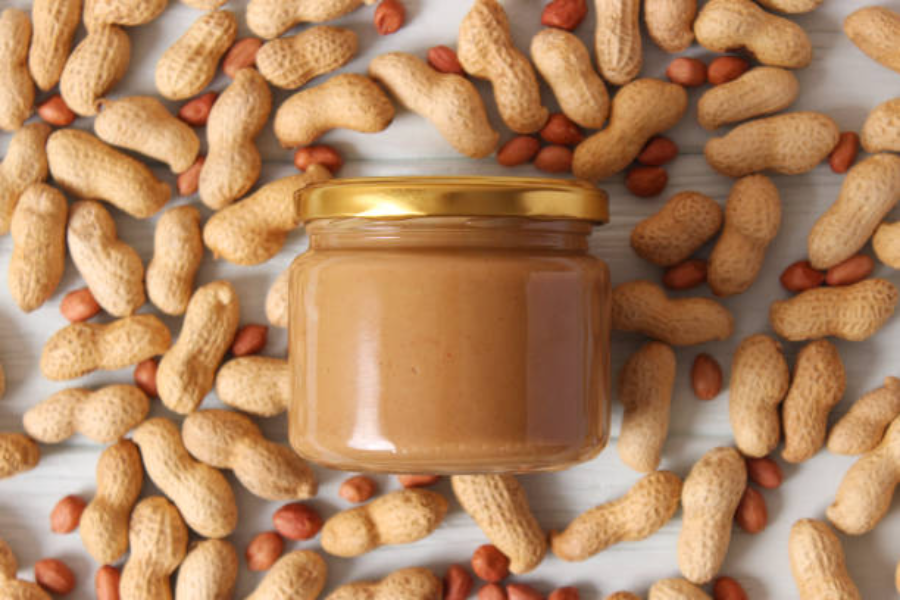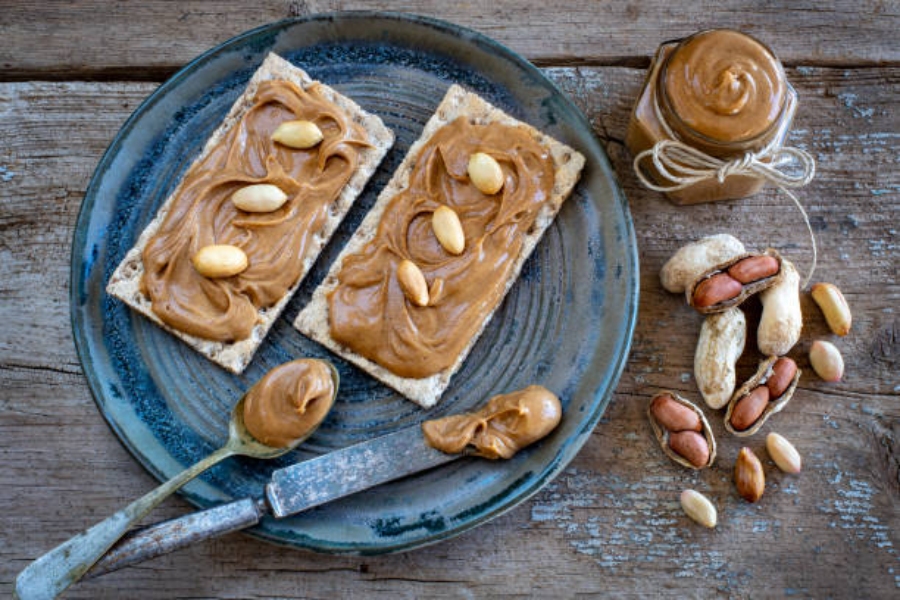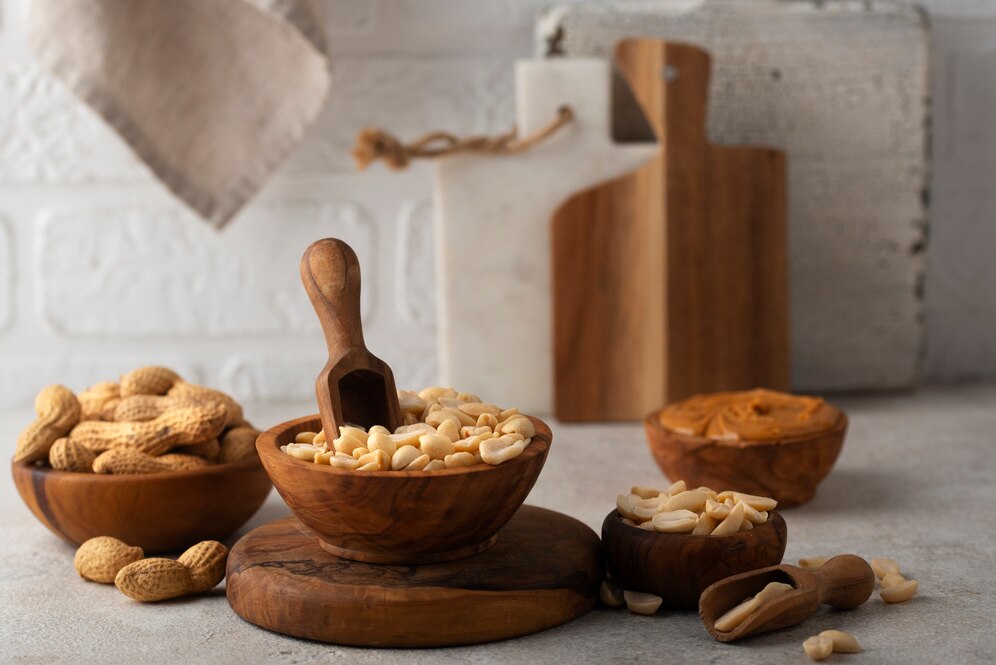
Peanut Butter and Fitness – Fueling Your Workouts
Peanut butter has emerged not just as a delectable spread but as a formidable ally for fitness enthusiasts, offering a myriad of benefits that extend beyond its flavorful reputation. Recognised for its nutritional richness, peanut butter stands out as a powerhouse of essential nutrients, playing a pivotal role in supporting workouts and facilitating the achievement of fitness goals.
Unlocking the Nutritional Essence of Peanut Butter
To comprehend the true value of peanut butter in fitness, it is imperative to delve into its nutritional composition. This versatile food source is a robust amalgamation of protein, healthy fats, and vital vitamins and minerals.
Protein Power in Peanut Butter:
Critical for muscle building and repair, peanut butter boasts an impressive protein content of approximately 8 grams per 2 tablespoons, contributing significantly to muscle recovery and growth.
Healthy Fats for Sustained Energy:
Contrary to common misconceptions about fats, peanut butter contains heart-healthy monounsaturated and polyunsaturated fats, providing enduring energy support and promoting overall well-being.
Essential Vitamins and Minerals:
Peanut butter is a rich reservoir of essential nutrients, including vitamin E, niacin, magnesium, and potassium, all contributing to energy production, muscle function, and overall health.
Peanut Butter's Role in Energy and Recovery
eyond its nutritional bounty, peanut butter offers distinct advantages for energy sustenance and post-workout recovery.
Complex Carbohydrates Fueling Workouts:
Enriched with complex carbohydrates, peanut butter ensures sustained energy during workouts, facilitating a gradual release of glucose to fuel muscles over extended periods.
Fibre’s Contribution to Energy Stability:
The high fibre content in peanut butter regulates blood sugar levels, preventing drastic fluctuations and ensuring a stable energy supply for optimal workout performance.
Antioxidants and Anti-Inflammatory Properties:
Loaded with antioxidants like resveratrol and p-coumaric acid, peanut butter mitigates exercise-induced inflammation and oxidative stress, promoting faster recovery and minimising muscle soreness.
Peanut Butter as Pre-Workout Powerhouse
Leveraging the benefits of peanut butter as a pre-workout fuel can elevate your fitness routine significantly.
Steady Energy Release:
Consuming peanut butter before a workout provides a sustained energy source, combining complex carbohydrates and healthy fats to optimise endurance and performance.
Blood Sugar Balance for Enhanced Stamina:
The fibre content in peanut butter stabilises blood sugar levels, guarding against energy crashes during intense workouts and contributing to sustained stamina.
Mental Clarity and Focus Boost:
The omega-3 fatty acids in peanut butter support brain health, enhancing focus, mental clarity, and concentration during training sessions.
Delectable Pre-Workout Peanut Butter Pairings and Recipes
Incorporating peanut butter into your pre-workout routine doesn’t have to be routine. Here are enticing and nutritious pairings and recipes to keep your taste buds satisfied:
Peanut Butter and Banana Smoothie:
Blend a ripe banana, a tablespoon of peanut butter, almond milk, and a scoop of protein powder for a creamy, protein-packed pre-workout smoothie.
Peanut Butter Energy Balls:
Combine peanut butter, rolled oats, honey, and dark chocolate chips or dried fruit for convenient bite-sized energy balls, perfect for a pre-workout snack.
Whole Wheat Peanut Butter Toast:
Spread a tablespoon of peanut butter on whole wheat bread, topping it with sliced bananas or berries for a simple and energising pre-workout meal.
Peanut Butter's Role in Post-Workout Recovery
Post-workout nutrition is paramount for recovery and optimising exercise efforts, and peanut butter plays a crucial role in this process.
Muscle Repair and Growth:
Peanut butter’s protein content aids in post-workout recovery by facilitating the repair and growth of lean muscle mass, optimising the body’s adaptation to training.
Electrolyte Replenishment and Hydration:
Loss of essential electrolytes during exercise is addressed by peanut butter, replenishing potassium and magnesium, and promoting proper hydration and muscle function.
Anti-Inflammatory Benefits:
The anti-inflammatory properties of peanut butter contribute to reducing exercise-induced inflammation and stress, expediting recovery and minimising muscle soreness.
Delicious Post-Workout Peanut Butter Snack Ideas
To enhance your post-workout recovery, consider these delightful and nutrient-rich peanut butter snacks:
Peanut Butter and Jelly Rice Cakes:
Spread peanut butter and your favourite jelly on rice cakes for a balanced blend of carbohydrates, protein, and a touch of sweetness.
Greek Yoghourt with Peanut Butter and Berries:
Top Greek yoghurt with a spoonful of peanut butter and fresh berries for a protein-packed and antioxidant-rich post-workout snack.
Peanut Butter Protein Smoothie:
Blend a scoop of protein powder, milk of your choice, a tablespoon of peanut butter, and a handful of spinach for a nutrient-dense and muscle-repairing post-workout smoothie.
Integrating Peanut Butter into a Balanced Diet
While peanut butter offers myriad benefits, prudent consideration of quantity, portion control, and potential alternatives is essential to align with individual dietary needs and goals.
Quantifying Peanut Butter Intake:
The recommended serving size of peanut butter is around 2 tablespoons, with adjustments made based on individual caloric or macronutrient requirements.
Caloric Intake for Weight Management:
Acknowledging peanut butter’s caloric density is crucial, requiring careful consideration within overall caloric intake to maintain a balanced diet and prevent potential weight gain.
Pairing Peanut Butter for Nutritional Balance:
To create a well-rounded meal or snack, combine peanut butter with other nutrient-rich foods like fruits, vegetables, whole grains, and lean proteins, enhancing overall nutritional value and balancing macronutrient intake.
Managing Allergies and Intolerances:
Individuals with peanut allergies should diligently avoid peanut butter, exploring alternative options and consulting healthcare professionals for personalised advice.
Nut-Free Spreads for Similar Benefits:
Nut-free alternatives such as sunflower seed butter and soy nut butter offer comparable nutritional benefits to peanut butter, catering to those with allergies.
Exploring Alternative Nut Butters:
For those without peanut allergies, experimenting with alternative kinds of nut butter like almond, cashew, or hazelnut butter can provide variety and additional nutritional benefits, allowing versatility in recipes and snacks.
In summary, peanut butter stands as a robust fitness fuel, contributing to muscle health, sustained energy, and efficient recovery. When integrated thoughtfully into a balanced diet, its versatile nature can elevate your fitness journey and help you achieve your goals with gusto.









